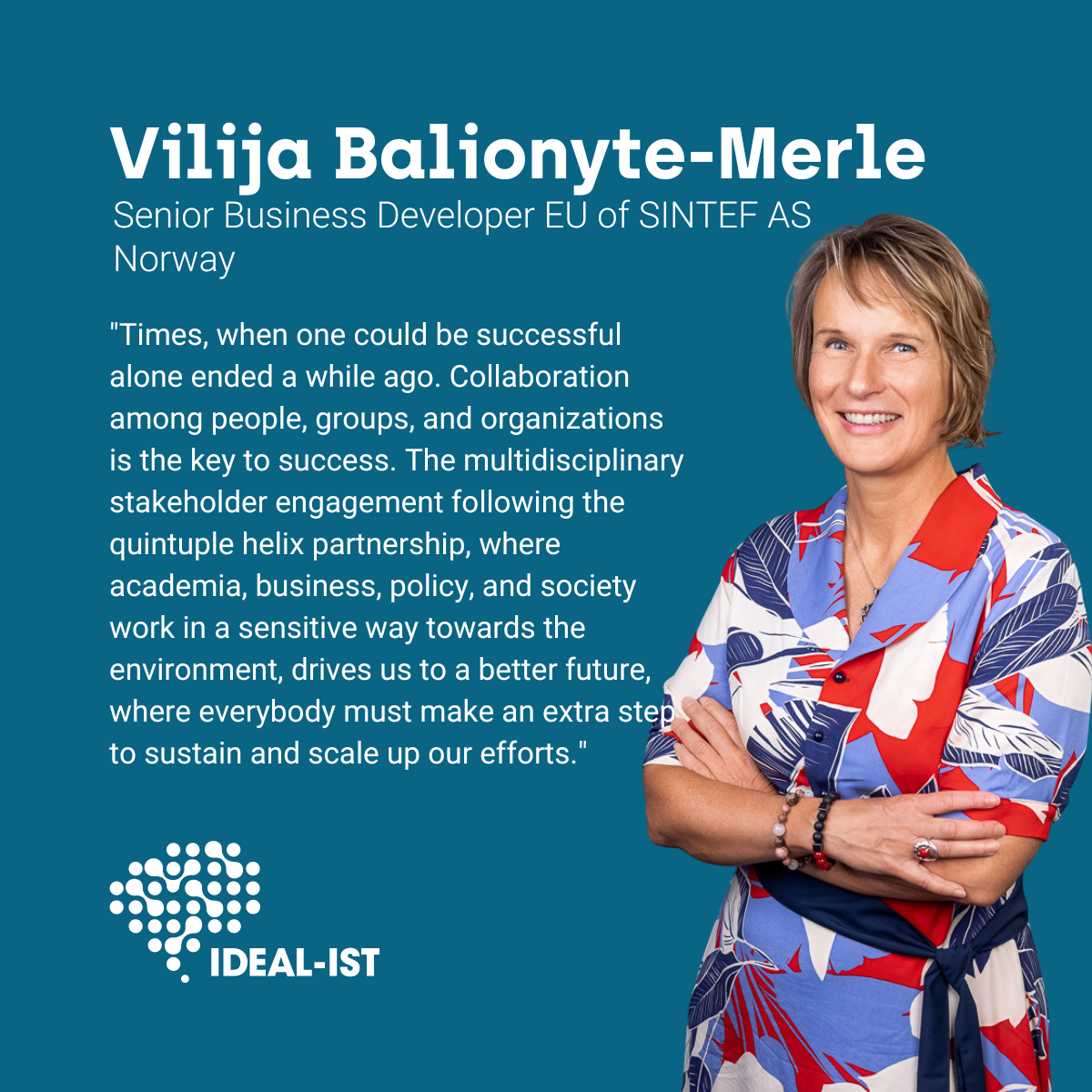

Your country? Norway
Your organisation? SINTEF AS
Your job title? Senior Business Developer EU
Your first and last name? Vilija Balionyte-Merle
Tell us about your successful project (you received funding for): We are starting the ENFIELD project on 1 September 2023. ENFIELD will create a unique European Centre of Excellence that excels the fundamental research in the scientific pillars of Adaptive, Green, Human-Centric, and Trustworthy AI that are new, strategic and of paramount importance to successful AI development, deployment, and acceptance in Europe and will further advance the research within verticals of healthcare, energy, manufacturing and space by attracting the best talents, technologies and resources from world-class research and industry players in Europe and by carrying out top-level research activities in synchronisation with industry challenges to reinforce a competitive EU position in AI and create significant socio-economic impact for the benefit of European citizens and businesses. ENFIELD will develop, maintain, scale-up and sustain a vibrant European network on AI composed of 30 consortium members from 18 countries, including top-level education and research organisations, large scale businesses, SMEs, and public sector representatives jointly addressing critical issues of research and innovation frontiers in this new topic of the European AI Lighthouse. ENFIELD is coordinated by NTNU (Norway) and SINTEF (Norway) is the core partner in project. The journey to build the community and create a European Centre of Excellence in AI started in 2019 with a submission of a proposal under a similar call and later repeated in 2021, however both attempts were unsuccesful. With every submission the core consortium group got better mobilised, the consortium got stronger in partnership and each time the proposal has been shaped in a better way. Thus, the third submission was rewarded by the granted funding. These continues efforts will play for our advantage when the project starts, because the network has been established over the last years. To this success I am partially thankful to the RESIST project, which is funded by the EU Missions and started on 1 January 2023. I am the strategic coordinator of RESIST on behalf of SINTEF. RESIST will strengthen the resilience and accelerate the transformation and increase adaptive capacity of 12 climate-vulnerable EU regions, implementing 4 large-scale demonstrators of resilient innovations for Climate Change Adaptation (CCA) with quintuple-helix partnerships (including 1 in a less developed region) and promote transfer of know-how and innovative solutions to 8 twin regions (of which 4 less developed regions) through both physical mutual-learning activities and innovative immersive digital twins. The project involves 56 partners and its budget is close to 27 million euros, while the digital technologies play a key role in adaptation to climate change. I learned when coordinating RESIST on how importnat is to listen and engage with all the stakaholders since the beginning in order to sustain and scale up the developed solutions.
What was the added value of your NCP? Kim Davis, the Norwegian NCP, has provided a very valuable support. She has used her critical eye to give constructive feedback to the developed proposals and encouraged to resubmit again addressing the evaluators points. She was the first contact point and indispensable advisor in the matters, such as how to re-shape the proposal for the released work programmes and where to find more information about the awarded and competing proposals.
Tell us what you would like to share with your peers as inspiration? Times, when one could be successful alone ended a while ago. Collaboration among people, groups and organisations is the key to success. The multidisciplinary stakeholder engagement following quintuple helix partnership, where academia, business, policy and society works in a sensitive way towards the environment, drives us to the better future, where everybody must make an extra step to sustain and scale-up our efforts.